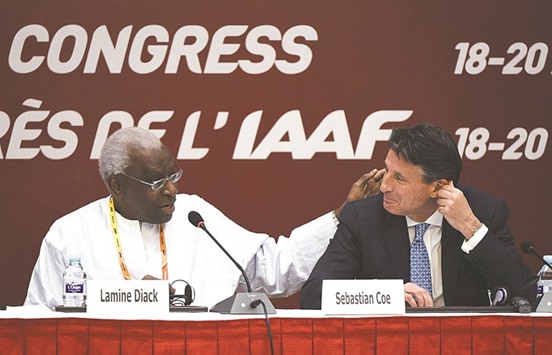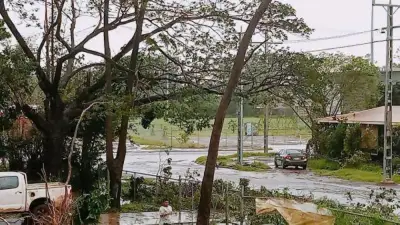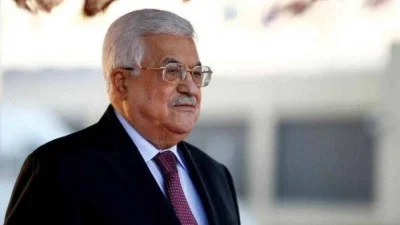Athletics’ governing body the IAAF has rejected claims by the BBC that its president Sebastian Coe misled a British government probe into doping and that he was helped in his presidential campaign by the son of his predecessor in the position.
The BBC’s Panorama programme had said Coe was aware of the detailed allegations of corruption within the IAAF before they became public and did not disclose it when he sat before a British Parliamentary Committee.
The programme also claimed Coe had been guided in his presidential campaign by former IAAF marketing official Papa Massata Diack, son of former president Lamine Diack, both of whom are subject to a corruption investigation by French prosecutors.
“Two broad allegations have been made by the BBC. Both are based on flawed assumptions that President Coe strongly refutes,” the IAAF said in a statement yesterday.
The statement accepted that Coe was sent a number of emails regarding allegations of corruption, as the BBC claimed, but said he did not read them and that he left them for the IAAF ethics commission to consider.
“Seb has never denied hearing rumours about corruption. In fact he has said on many occasions that when alerted to rumours he asked people to pass them on to the ethics commission to be investigated,” the IAAF said.
“You may think this shows a lack of curiosity. He, and we, would argue that it shows a full duty of care. Ensuring the right people in the right place were aware of allegations and were investigating them.”
The BBC published what it said was a series of emails, some between Coe and Diack, and also involving Coe’s former chief of staff Nick Davies, who was last week suspended from duty by the ethics commission subject to an investigation into claims he received a payment for covering up Russian doping.
The IAAF said the BBC had not, despite requests, shown evidence of the electronic evidence and added: “The suggestion that Seb Coe was actively seeking Papa Massata Diack’s advice about his campaign is wrong.
“As with any campaign, lots of people offer advice — wanted or not, some helpful, some not. You try to be civil but wary. This was the case with Mr Diack. He sent messages of support while at the same time supporting other candidates and accusing Seb Coe of leading a British media campaign against both him and his father.”
IAAF Council — who votes?
The International Association of Athletics Federations (IAAF) council, which will vote today on whether to re-accept the Russian track and field federation, administers the affairs of the IAAF.
The IAAF Council consists of 27 elected members, including one president, four vice presidents, one treasurer, one representative from each of the six area groups and 15 individual members.
There is guaranteed minimum of six female members. Each member is elected by the IAAF Congress for a period of four years.
The Council administers the affairs of the IAAF, appoints the general secretary and delegates to IAAF competitions.
It has the power to provisionally elect or suspend a member federation, and to take urgent decisions. It submits a report and a budget to Congress every two years. It seems highly unlikely that all 27 Council members will vote today.
Russian federation representative Mikhail Butov will not have the right to vote while under-pressure Kenyan member David Okeyo could choose to avoid the limelight.
IAAF Council members
President (1): Sebastian Coe (GBR)
Senior vice president (1): Sergey Bubka (UKR)
Vice presidents (3): Dahlan Jumaan al-Hamad (QAT), Alberto Juantorena (CUB), Hamad Kalkaba Malboum (CAM)
Treasurer (1): Jose Maria Odriozola (ESP)
Members (20): Ahmad al-Kamali (UAE), Nawaf bin Mohammed al-Saud (KSA), Bernard Amsalem (FRA), Sylvia Barlag (NED), Mikhail Butov (RUS), Pauline Davis-Thompson (BAH), Zhaocai Du (CHN), Nawal El Moutawakel (MAR), Frank Fredericks (NAM), Geoff Gardner (AUS), Roberto Gesta de Melo (BRA), Svein Arne Hansen (NOR), Stephanie Hightower (USA), Abby Hoffman (CAN), Karim Ibrahim (MAS), Victor Lopez (PUR), David Okeyo (KEN), Antti Pihlakoski (FIN), Anna Riccardi (ITA), Adille Sumariwalla (IND), Hiroshi Yokokawa (JPN)

BBC’s Panorama programme said Coe (right) was aware of the detailed allegations of corruption within the IAAF before they became public. It also claimed that Coe had been guided in his presidential campaign by former IAAF marketing official Papa Massata Diack, son of former president Lamine Diack (left).


